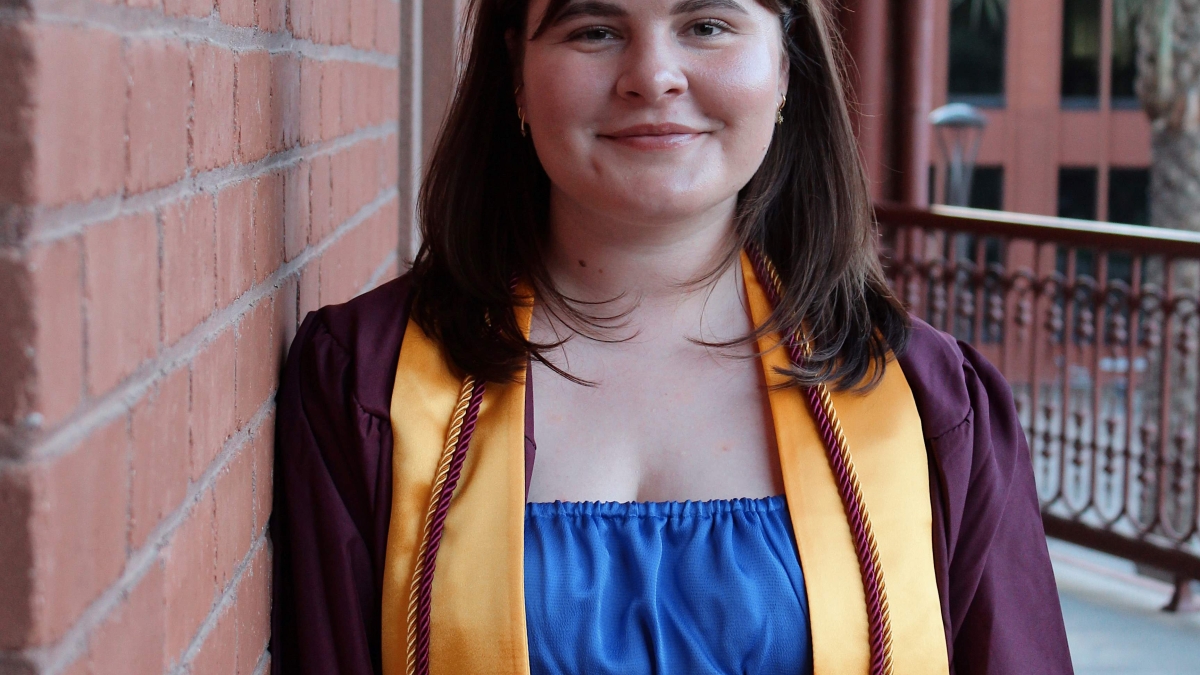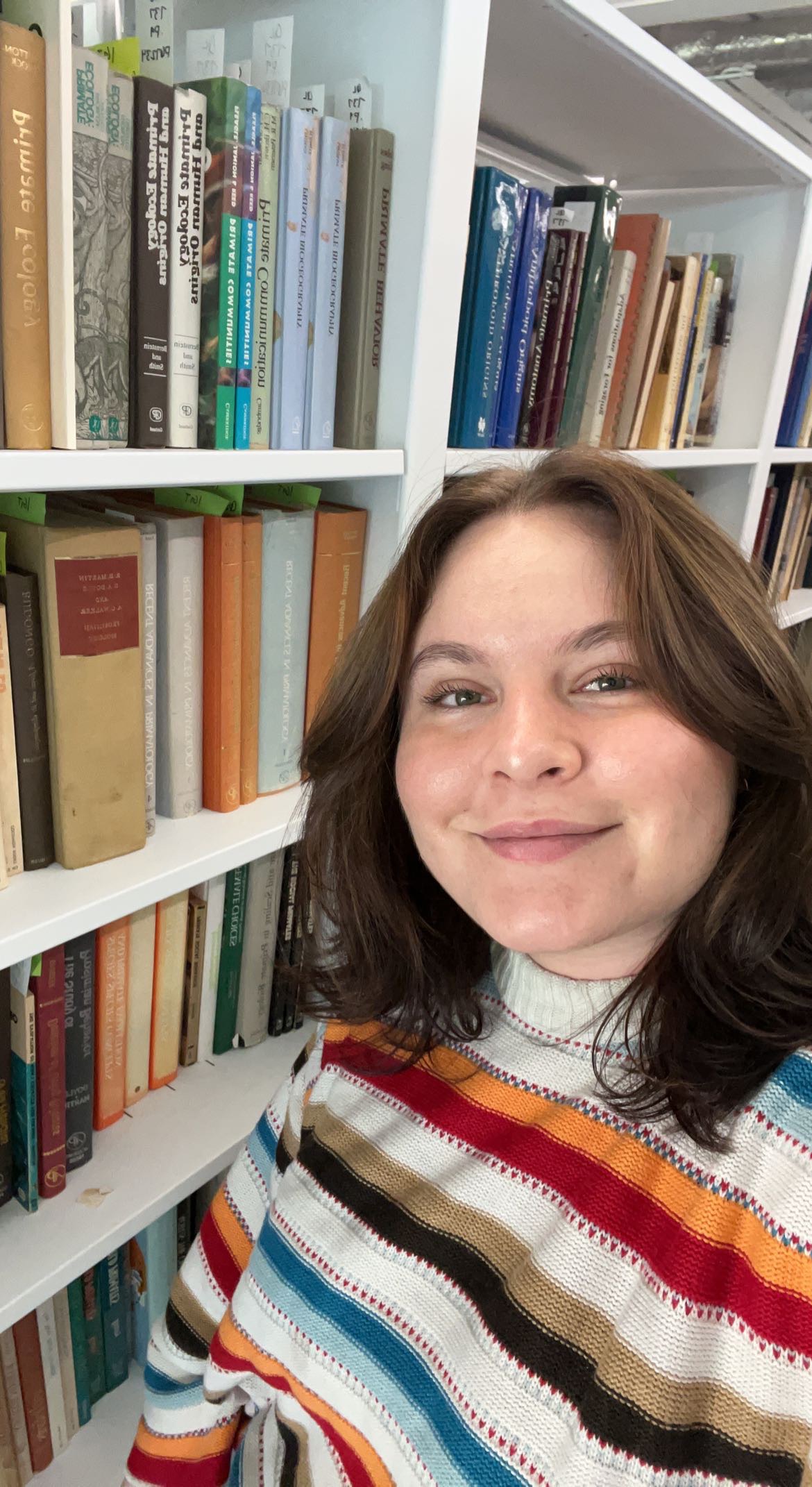ASU anthropology graduate to focus on ethics in museum studies

Mackenzie Wright
Editor's note: This story is part of a series of profiles of notable spring 2023 graduates.
Mackenzie Wright found her true passion at Arizona State University while navigating being a student during the COVID-19 pandemic. She will graduate this spring with a Bachelor of Science in anthropology from the School of Human Evolution and Social Change.
As a fifth-generation Arizonan, and soon-to-be third-generation ASU graduate, Wright knew ASU was where she wanted to study, but her focus changed a little and she said it was for the best.
“I started at ASU as an astrophysics major and only switched to anthropology in the middle of my sophomore year,” Mackenzie said. “What made me switch was Physics 2, Calculus 3, and the onset of COVID – all-in-all a terrible combination that forced me to reflect on what I really wanted to do with my life. At this point, I already had a history minor and had always gravitated towards anthropology after watching the show “Bones” as a kid, so switching my major to anthropology was a no-brainer. After three years of following through with anthropology, my only regret is not switching sooner.”
ASU News talked with Wright about her plans for the future.
Note: Answers have been edited for length and clarity.
Q: What’s something you learned while at ASU — in the classroom or otherwise — that surprised you or changed your perspective?
A: One thing that surprised me was the true sense of community that ASU offers, despite being a commuting student. Initially, I was worried I wouldn't be able to navigate the college experience and connect with professors and students since I didn't live on campus. But ASU, and specifically the School of Human Evolution and Social Change, have a bunch of online resources, clubs and events that allow you to connect with others. In addition, the newsletters that provide information about scholarships, internships and more, made integrating myself into the school and ASU a smooth process. You don't have to live on campus to be involved!
Q: Which professor taught you the most important lesson while at ASU?
A: Interning with Brenda Baker, associate professor with my school, for the past year has taught me a lot of valuable lessons, but the most important one she hammered into me was to not doubt myself and my accomplishments. Being a woman in STEM and the first of my siblings to go through college, imposter syndrome was (and still is) a big struggle for me. But by guiding me through my work, research and classes, providing feedback, and supporting me in all my endeavors, Baker has soothed that self-doubt.
Mackenzie Wright
Q: What’s the best piece of advice you’d give to those still in school?
A: One piece of advice that I always stick to is the phrase “the worst they can say is ‘no’,” in reference to applying to jobs, meeting new people, asking for advice/extensions, etc. Two of my current positions as a student worker at the Institute of Human Origins and intern at my school were gained by simply applying, despite thinking I wasn’t entirely qualified. But I applied anyway because the worst they could say was “no.” Flash-forward a year, and I still have both positions, so I think it turned out pretty well. Don’t wait for opportunities to come to you, seek them out and apply.
Q: What was your favorite spot on campus, whether for studying, meeting friends or just thinking about life?
A: The second floor of Noble Library was my spot for everything – studying, meeting with friends, more studying – plus the Starbucks downstairs was a nice incentive to go. My other go-to location is the courtyard inside the Social Sciences building because all the natural sunlight and plants provide a really nice and calming atmosphere.
Q: What are your plans after graduation?
A: I’ve accepted an offer to attend George Washington University to pursue a master's degree in anthropology, with a concentration in museum training, and will be moving to Washington, D.C. at the end of the summer. Afterward, I aim to find myself a position as a collections manager or Native American Graves Protection and Repatriation Act coordinator to ensure museum collections are up to date with legal and ethical standards.
More Arts, humanities and education

ASU's Pen Project helps unlock writing talent for inmates
It’s a typical Monday afternoon and Lance Graham is on his way to the Arizona State Prison in Goodyear.It’s a familiar scene.…

Phoenix civil rights activists highlighted in ASU professor’s latest book
As Phoenix began to grow following WWII, residents from other parts of the country moving to the area often brought with them Jim…

Happy mistake: Computer error brings ASU Online, on-campus students together to break new ground in research
Every Thursday, a large group of students gathers in the Teotihuacan Research Laboratory (TeoLab) in the basement of the…


